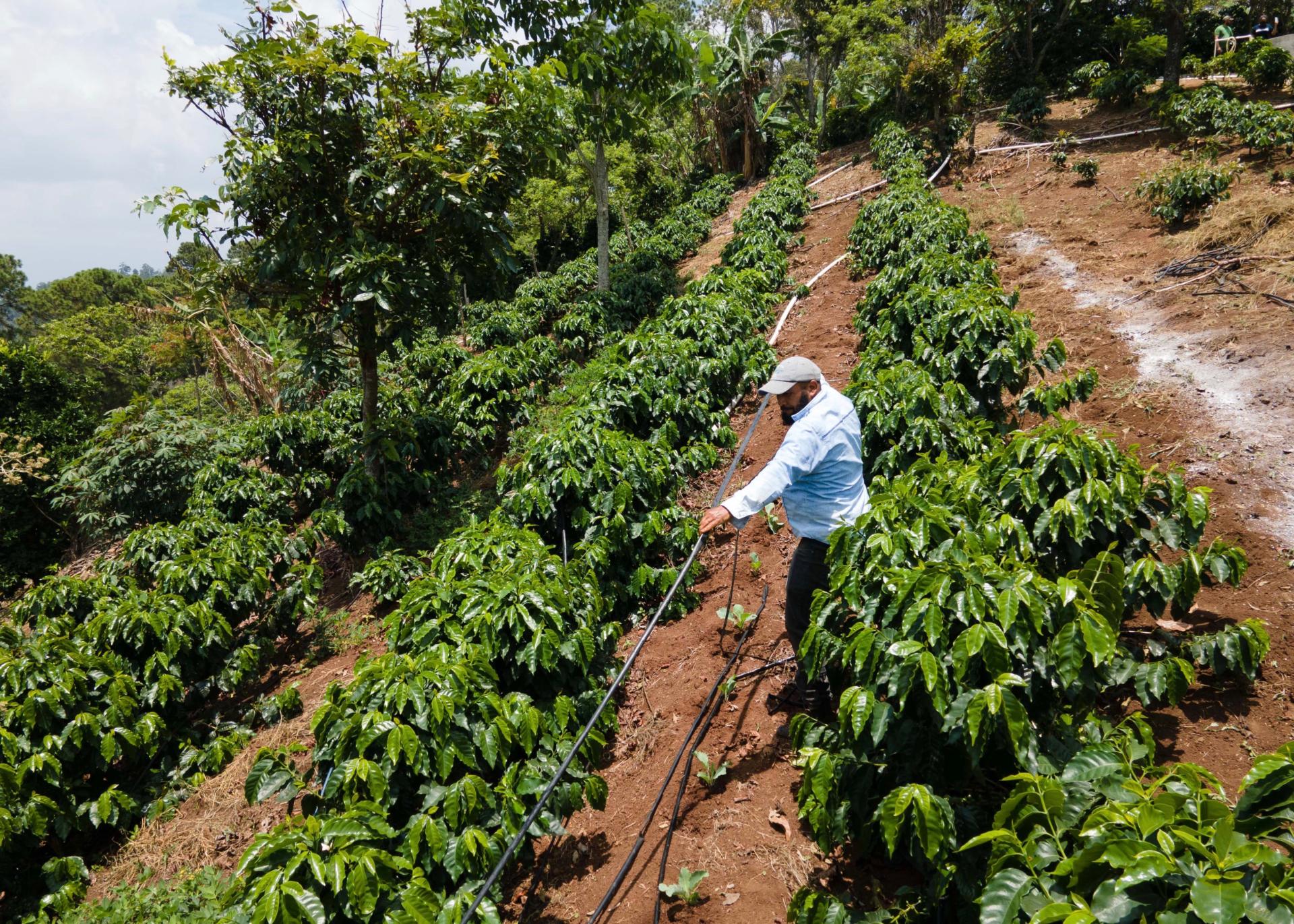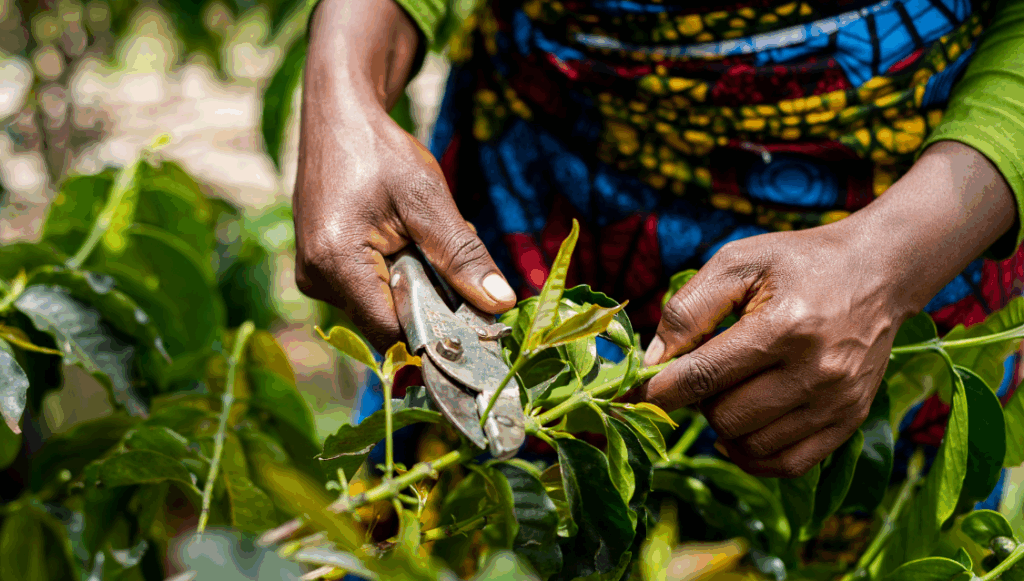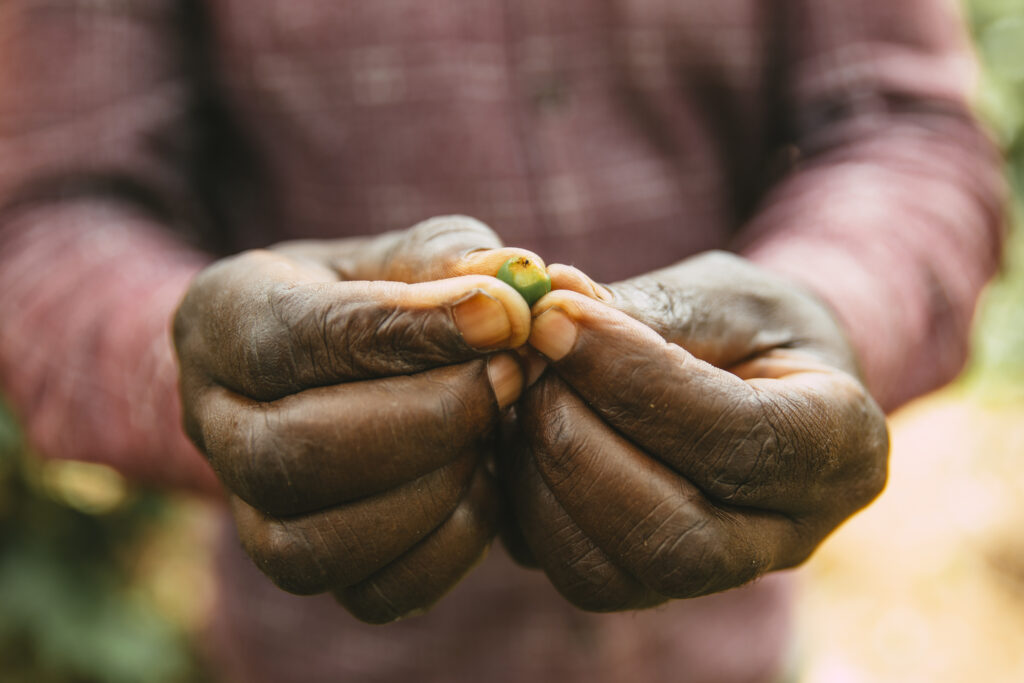
How we work
c&c is not just another initiative. Our work is scientifically based, and we operate on the ground.
We work together with scientific experts, smallholder coffee farming families, and their local communities to become stronger and more resilient in the face of climate change, and to restore and protect landscapes.
We co-develop and scale climate-smart knowledge, practices and tools. Our work is based on a five-step approach, and goes beyond agronomy.
With us for farmers.
We are backed by International Coffee Partners (ICP), who founded the initiative for coffee&climate in 2010. ICP is a pre-competitive partnership of seven leading family-owned European coffee companies: Delta Cafés of Portugal, Franck of Croatia, Joh. Johannson of Norway, Lavazza of Italy, Löfbergs of Sweden, Neumann Kaffee Gruppe of Germany, and Tchibo of Germany. ICP supports smallholder coffee farmers to improve their livelihoods and food security by becoming more competitive, based on sustainable practices. In doing so, ICP aims at contributing to a fair and sustainable coffee sector in all coffee-producing countries.
c&c projects are coordinated and implemented by Hanns R. Neumann Stiftung (HRNS), an internationally operating foundation dedicated to livelihood improvement in tropical rural environments, youth support as well as protecting nature and the environment.
Our Key Figures




